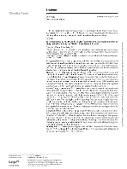| dc.contributor.author | Ohno, Maika | |
| dc.contributor.author | Vávra, Jan | |
| dc.contributor.author | Jehlička, Petr | |
| dc.date.accessioned | 2025-01-27T14:11:01Z | |
| dc.date.available | 2025-01-27T14:11:01Z | |
| dc.date.issued | 2024 | |
| dc.identifier.uri | https://hdl.handle.net/20.500.14178/2828 | |
| dc.description.abstract | Background: Food insecurity is a profound public health concern. It is affected by social determinants of health and leads to malnutrition and hence poor health. COVID-19 impacted people disproportionately and exacerbated preexisting social and health inequalities. The aim of this study was to understand how socioeconomic and health conditions affected food security and diet in Czechia during the pandemic.Methods: Data on a representative panel of Czech adults from a longitudinal survey, Life During the Pandemic collected in October 2022 as part of a Czech longitudinal survey were analyzed. Binary logistic regression was performed to evaluate whether food insecurity during the pandemic was associated with socioeconomic factors (sex, age, education, income, number of children, size of municipality) and health factors (BMI, mobility, and self-perceived health). The association between food insecurity and fruits and vegetable consumption, as well as growing own food in a garden was also explored.Results: Younger people aged 20-34 years, lower education attainment, and people with limited mobility and poor self-perceived health had higher odds of reporting food insecurity. The lowest income group was associated with 7.0 times higher likelihood of reporting food insecurity as compared to the high-income group (95% CI 4.83, 10.26). Food insecurity was also associated with not eating fruits and vegetables daily, and those who didn't grow own food had higher odds of reporting food insecurity. People with overweight and obesity had higher odds of not eating fruits and vegetables daily, however, after controlling for income and self-perceived health, BMI was not a predictor for fruits and vegetable consumption, but education attainment remained as a strong predictor for fruits and vegetable consumption.Conclusions: Our study suggests that younger people and socially, economically vulnerable groups of people were more likely to experience food insecurity and limited consumption of fruits and vegetables during the pandemic. Policies that support these groups and reduce inequality in education and income are needed to reduce food insecurity and to improve quality of diet. Growing own food may reduce impacts of food insecurity. Encouraging people to grow own food either in their own garden or in allotments may prepare us for unprecedented food insecurity. | en |
| dc.language.iso | en | |
| dc.publisher | S. Karger | |
| dc.relation.url | https://doi.org/10.1159/000538577 | |
| dc.rights | Creative Commons Uveďte původ-Neužívejte dílo komerčně 4.0 International | cs |
| dc.rights | Creative Commons Attribution-NonCommercial 4.0 International | en |
| dc.title | Socioeconomic and health predictors for food insecurity, and implications for dietary inequality during the COVID-19 pandemic in Czechia | en |
| dcterms.accessRights | openAccess | |
| dcterms.license | https://creativecommons.org/licenses/by-nc/4.0/legalcode | |
| dc.date.updated | 2025-05-05T08:41:03Z | |
| dc.subject.keyword | socioeconomic inequality | en |
| dc.subject.keyword | health | en |
| dc.subject.keyword | food security | en |
| dc.subject.keyword | COVID-19 | en |
| dc.subject.keyword | pandemic | en |
| dc.subject.keyword | Czechia | en |
| dc.subject.keyword | BMI | en |
| dc.subject.keyword | obesity | en |
| dc.publisher.publicationPlace | Basel | |
| dc.identifier.eissn | 1662-4033 | |
| dc.relation.fundingReference | info:eu-repo/grantAgreement/MSM//LX22NPO5101 | |
| dc.relation.fundingReference | info:eu-repo/grantAgreement/MSM//SVV260696 | |
| dc.relation.fundingReference | info:eu-repo/grantAgreement/UK/COOP/COOP | |
| dc.date.embargoStartDate | 2025-05-05 | |
| dc.contributor.organizer | European Association for the Study of Obesity (EASO) | |
| dc.type.obd | 110 | |
| dc.type.version | info:eu-repo/semantics/publishedVersion | |
| dc.identifier.doi | 10.1159/000538577 | |
| dc.identifier.utWos | 001224707200001 | |
| dc.identifier.obd | 651853 | |
| dc.subject.rivPrimary | 30000::30300::30304 | |
| dc.subject.rivSecondary | 30000::30300::30308 | |
| dcterms.isPartOf.name | Obesity Facts | |
| dcterms.isPartOf.issn | 1662-4025 | |
| dcterms.isPartOf.journalYear | 2024 | |
| dcterms.isPartOf.journalVolume | 17 | |
| dcterms.isPartOf.journalIssue | Suppl. 1 | |
| uk.faculty.primaryId | 115 | |
| uk.faculty.primaryName | Přírodovědecká fakulta | cs |
| uk.faculty.primaryName | Faculty of Science | en |
| uk.department.primaryId | 1056 | |
| uk.department.primaryName | Katedra sociální geografie a regionálního rozvoje | cs |
| uk.department.primaryName | Department of Social Geography and Regional Development | en |
| uk.event.name | 31st European Congress on Obesity 2024 | |
| dc.description.pageRange | 193-193 | |
| dc.type.obdHierarchyCs | ABSTRAKT::abstrakt::abstrakt v konferenčním sborníku | cs |
| dc.type.obdHierarchyEn | ABSTRACT::abstract::abstract in conference proceedings | en |
| dc.type.obdHierarchyCode | 110::130::462 | en |
| uk.displayTitle | Socioeconomic and health predictors for food insecurity, and implications for dietary inequality during the COVID-19 pandemic in Czechia | en |

